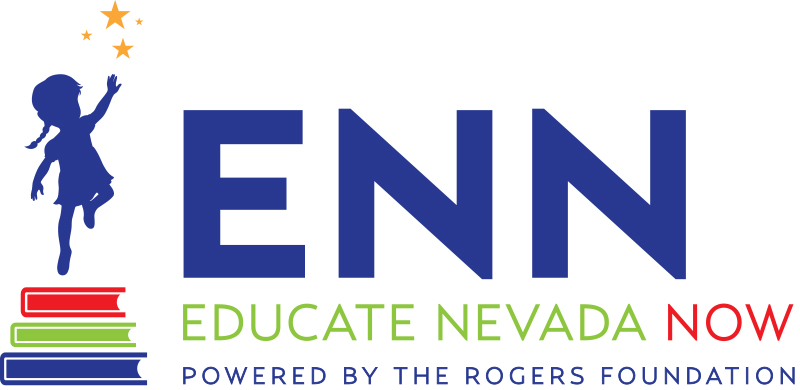COMMENTARY: School voucher plans fraught with problems
Since the Nevada Supreme Court deemed unconstitutional Senate Bill 302, Nevada’s voucher bill or Education Savings Accounts, some lawmakers and the governor are attempting to revive the controversial program with new legislation, Senate Bill 506.
Nevermind that studies show students don’t actually fare better when taking advantage of voucher programs or that private schools will still remain out of reach for the poor, or that these funds may not even go to the families that need them most. When you research similar programs throughout the nation, you find countless stories of fraud, waste, misuse and abuse in probably every way imaginable — by parents, “charitable” organizations facilitating the voucher giveaways, and of course, by the private schools themselves.
For instance, in Arizona, a state audit identified that more than $102,000 in ESA funds were misspent during a six-month period, resulting from spotty oversight. Examples included parents who kept the state’s money after enrolling their children in public school, parents who bought unqualifying items such as snow globes and sock monkeys, and parents who didn’t submit required expense reports to the Arizona Department of Education.
In one specific case, a mom felt a high-definition television from Walmart, along with a smartphone and a tablet, was the best way to improve her child’s educational experience.
Recently, a public records request by the Arizona Republic resulted in a finding that the tracking of vouchers funds “is opaque, incomplete and riddled with errors.” One supporter of the program even admitted the lack of oversight. “We don’t know where it’s (the money) going to,” said Rep. Regina Cobb, R-Kingman, who cast one of the deciding votes in favor of expanding the choice program. “We have nothing. How do we make decisions as lawmakers, as far as funding a program, when we don’t even know if it’s working?”
There’s a big conception that Nevada’s ESA program will help the families that need it most — low-income families zoned for poor-performing schools. Like in Nevada, other states have been duped into believing this claim, only to find affluent families take advantage of the taxpayer subsidy while poor families stay in their neighborhood schools.
Two years after Arizona expanded its voucher program, data showed an overwhelming number of voucher recipients actually came from high-performing schools in wealthy neighborhoods. Preliminary data also found that the majority of families that applied in Nevada came from the wealthiest ZIP codes and already had access to some of the highest-rated public schools.
Then there’s the issue of private-school fraud. At Milwaukee’s Mandella School of Science and Math, the principal and school founder used proceeds from state voucher payments to buy two Mercedes-Benz automobiles at a cost of $65,000. All the while, he owed the state almost $330,000 for more than 200 checks that were “inappropriately” cashed, according to officials. Many of those checks, worth about $1,500 apiece, were made out to families whose children never attended Mandella.
Sometimes the private schools are so woefully inept or inadequate, they close altogether, making off with unspent taxpayer funds. In Wisconsin, more than two-thirds of the 50 schools terminated from the state’s voucher system since 2004 had stayed open for five years or less.
When curriculum requirements are in place, the lack of quality in private schools becomes even more apparent. For example, Northside High School in Wisconsin received $1.7 million in state vouchers for low-income students attending the private school before being terminated from the program in its first year for failing to provide an adequate curriculum.
Meanwhile, students at New Living Word School in Louisiana were found to be receiving most of their instruction via DVD and lacked teachers and facilities to handle an influx of new students. Additionally, the Associated Press reported that the school spiked up the cost for students receiving vouchers, charging the state $6,300 for each of its 93 voucher students but charging just $530 for each of its 109 non-voucher students in 2012-2013 — which is prohibited under Louisiana’s law. (Nevada’s proposed bills have no such safeguard.)
Furthermore standardized test scores for voucher schools in Louisiana have been unimpressive — coming in 30 points below the state average last year, according to the Times-Picayune. Arizona’s tax credit voucher program also led many private schools to hike tuition.
Can this happen in Nevada? Absolutely nothing in the proposed voucher bills prohibits price gouging voucher recipients. Nothing in Senate Bill 506 requires more than 10 percent of ESA accounts to be audited, a regulation under the previous voucher bill. The other 90 percent? We’ll just have to hope for the best.
In a time when legislators are talking about real change and real investment in education, let’s put those dollars in our public schools where we can ensure accessibility and accountability of our tax dollars.
Amanda Morgan is legal director of Educate Nevada Now, a nonpartisan education policy organization.
